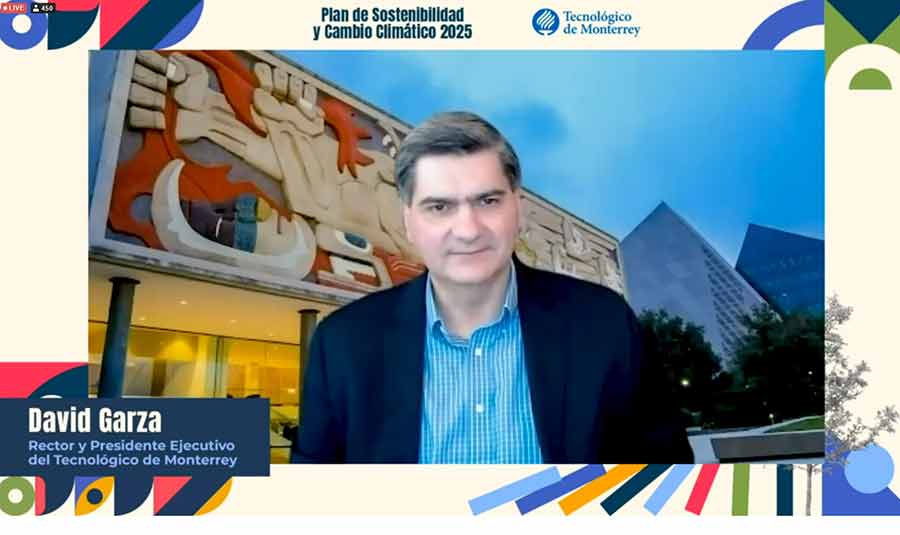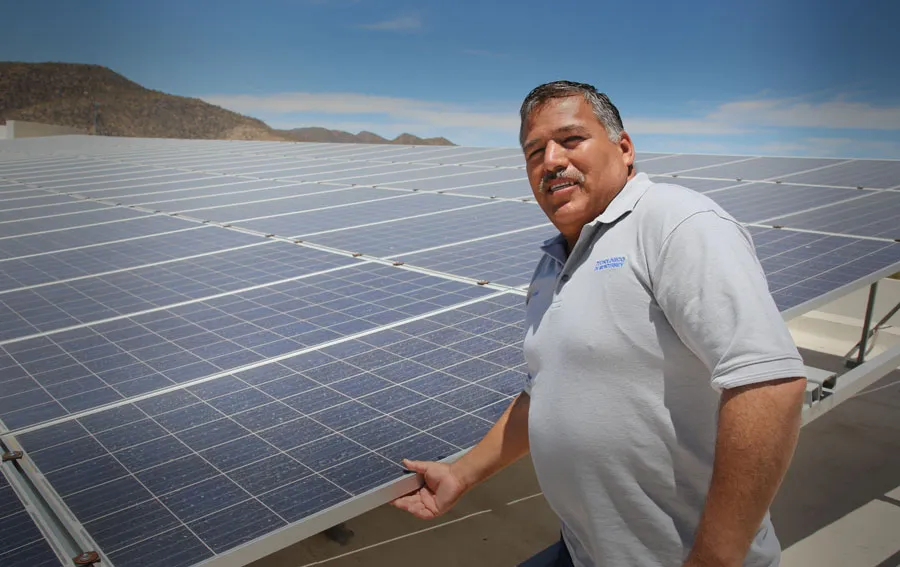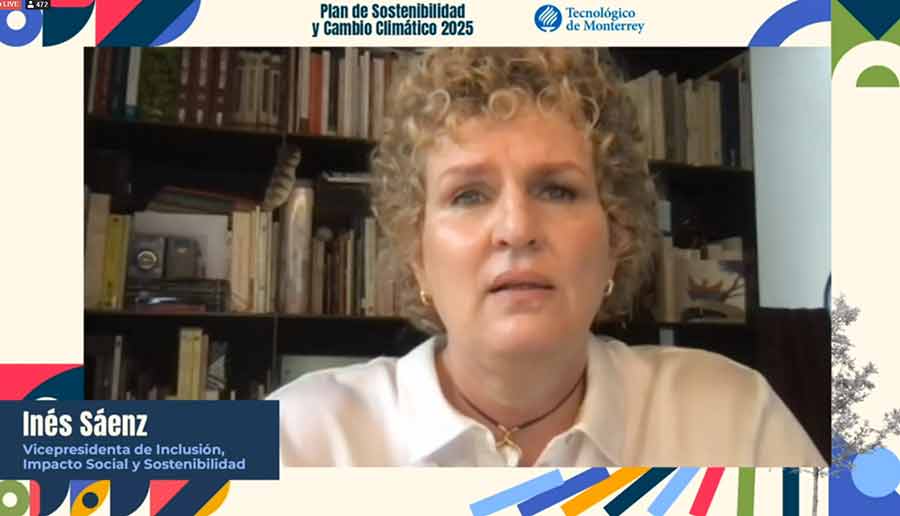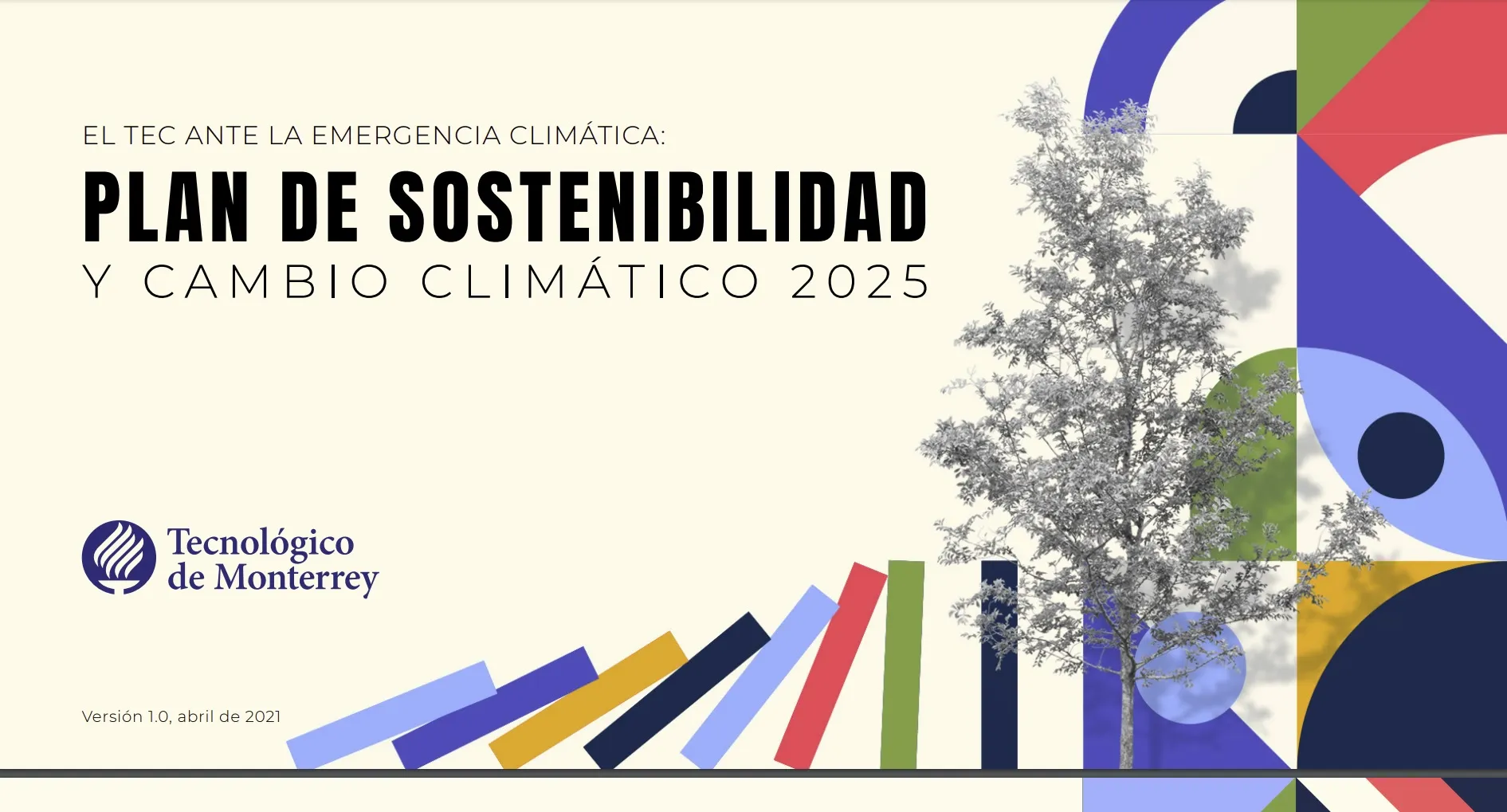Tecnológico de Monterrey has presented its 2025 Sustainability and Climate Change Plan, including objectives and actions to face the global climate emergency.
In an online presentation, several directors from the institution shared the 6 strategic areas that the institution will work on as part of its plan for 2025:
Culture of Sustainability, Mitigation, Adaptation, Education, Research and Outreach.
“We’re convinced that we have the opportunity to create a better world. It’s not too late for us to avert the worst impacts of climate change”, adds Inés Sáenz, Vice President for Inclusion, Social Impact, and Sustainability.

Culture of Sustainability: changing the way we think
As part of this key area, we will develop a culture that promotes sustainability and care for the environment at the institutional level.
Awareness raising campaigns, activities, and programs to experience sustainability, as well as responsible resource management, are some of the activities within this area.
“We know that tackling the ecological crisis requires a cultural change.
“This means everyone participating equitably in the tasks of caring for and protecting the most vulnerable from the impact of climate change,” says Sáenz.
“Now, more than ever, we must be aware of the urgent need to protect nature and ourselves.” - David Garza, Rector and Executive President of the Tec
Mitigation: reducing environmental impact
The objective of this area is to reduce the institution’s environmental impact, reduce its carbon footprint, improve water use, and make waste management more efficient.
By 2025, 80% of the Tec’s energy is expected to come from renewable sources, as well as a 20% reduction in energy use and a 50% reduction in greenhouse gas emissions.
“Our goal is to develop and use technologies, policies, and procedures based on the best sustainability practices,” said Víctor Gutiérrez, Rector of Operations.
Adaptation: reducing infrastructure vulnerability
Reducing infrastructure vulnerability and improving adaptability to the impacts of climate change are the main objectives of this area.
To achieve this, the institution will carry out climate change impact studies and create adaptation plans for each of the Tec campuses, amongst other steps.
These activities would be focused on reducing disaster risks, adapting campus infrastructure to meet the needs of different ecosystems, and increasing the capacity to adapt of vulnerable communities, to name but a few.
“Mitigation is not enough, it is also important to adapt to these new changes through initiatives and measures aimed at reducing impact,” says Hernán García, Vice President for Talent and Experience.

Education: sustainable development training
“Environmental, sustainability, and climate change issues should be prioritized in academic courses,” said Juan Pablo Murra, Rector of Undergraduate and Graduate Studies.
As part of this strategy, Tec students, teachers, and staff will be educated in sustainable development issues through curricular and extra-curricular activities, which will take place within and outside the institution.
This initiative includes promoting development laboratories and programs such as Distrito Tec at the Monterrey campus.
“The idea is for every individual to know about climate change,” adds Murra.

Research: finding solutions to climate change
“We will convert campuses into living laboratories where innovation will be part of the day-to-day activities of our students and staff,” says Guillermo Torre, Rector of TecSalud and Vice President for Research.
Some of the activities in this area will include carrying out research on climate change and promoting student projects dedicated to solving problems within our facilities and specialized centers.
There will also be long-term funding to encourage research on sustainability issues.

Outreach: forming partnerships
This strategy means that Tec will not face climate change alone, and will seek to form local, national and global partnerships.
“Tackling climate change requires rapid, profound and far-reaching changes across our society.
“This requires close cooperation between academia, public and private sectors, and the whole of society,” says Rodolfo Rubio, Vice President for Communication and Outreach.
As part of this initiative, the Tec will form partnerships to work on climate action with organizations such as the WWF and the National Inter-University Network on Climate Change.
Creating a climate services consulting system for industrial and educational sectors will be one of many other activities.
“Now, more than ever, we must be aware of the urgent need to protect nature and ourselves,” says David Garza, Rector and Executive President.
READ MORE ABOUT THIS TOPIC IN CONECTA:





